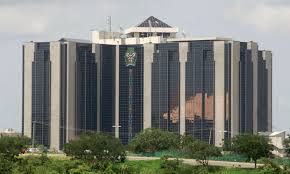
Trade Deficit Increases To $2.51bn After Border Reopening
Nigeria’s exports declined while imports increased in January despite the opening of the land borders.
Nigeria’s trade deficit rose from $1.69bn in December 2020 to $2.51bn as of the end of January 2021 despite the reopening of the borders, statistics made available by the Central Bank of Nigeria have shown.
For more than a year, the Federal Government shut the country’s land borders due to alleged violation of ECOWAS protocols by neighbouring countries.
The border closure was aimed at stemming the tide of smuggling, illicit migration, arms banditry, drug trafficking and proliferation of light weapons.
While the closure was aimed at strengthening demand for some local products, it impacted negatively on others as many businesses could not import from or export to the West and Central African market.
On December 16, the Federal Government ordered the reopening of four borders – Seme, Ilela, Mfun and Maigatari.
The CBN January report on external sector trade performance showed that while trade volume in January increased, the export component decreased compared to the import component.
Part of the report read, “The expected positive effect of the reopening of Nigeria’s land borders on trading activities was evident, despite the adverse effects of the second wave of the COVID-19 pandemic.
“Data on aggregate external trade at $8.14bn showed a month-on-month increase of 3.2 per cent, from $7.89bn recorded in December 2020.
“When compared with the corresponding period of 2020, it indicated a 27.5 per cent decline.
“Aggregate exports declined by 9.2 per cent to $2.81bn in the review period, compared with $3.1bn in December 2020, due, largely, to decline in crude oil and gas export receipts.
“Merchandise imports, however, increased to $5.33bn in January 2021, from $4.79bn in December 2020, as domestic demand improved in the review period.
“A higher trade deficit of $2.51bn was recorded in January 2021, relative to $1.69bn in December 2020.”
The CBN also disclosed that the country spent $160m foreign exchange on food importation in January.
According to the communique of the Monetary Policy Committee which was released recently by the CBN after its last meeting, a member of the MPC, Obadan Idiahi, said the external sector reflected increased pressures on the country’s economy.
Idiahi said this was characterised by worsening current and capital account deficits, foreign exchange demand/exchange rate pressure, low accretion to external reserves, low foreign capital inflows and heightened capital flows reversal.
He said, “In the fiscal sector, the government is increasingly confronted with low domestic revenue mobilisation/declining revenue in the face of increasing public expenditure, rising fiscal deficit and rising public debt and rising public debt/revenue ratio with consequent increasing pressure on monetary accommodation.
“The external sector challenge can be addressed by laying a solid foundation for non-oil exports growth to provide a fairly more stable source of foreign exchange earnings and reserves accumulation.
“To this end, provision of a conducive macroeconomic environment is indispensable. On the fiscal front, the challenge is from both revenue and expenditure sides.
“The political will to aggressively mobilise tax revenue is of the essence, while the government needs to take a hard look at the cost of governance with a view to rationalising it.
“This is already a source of public concern, yet government organs continue to make suspect policy decisions that could increase the already worrisome high cost of governance.”
The CBN Governor, Godwin Emefiele, worried that despite its intervention in the agriculture sector, the insecurity challenges in the country was affecting its impact on production.
He said the MPC noted with concern the continued uptick in inflationary pressure in 2021, as headline inflation (year-on-year) continued on an upward trend.
Emefiele said, “This increase continued to be attributed to the increase in both the food and core components of inflation which rose to 21.79 and 12.38 per cent in February 2021, respectively, from 20.57 and 11.85 per cent in January 2021.
“This persisting uptick in food inflation, however, was the major driving factor to the uptick in headline inflation.
“This was due to the worsening security situation in many parts of the country, particularly, the food producing areas, where farmers face frequent attacks by herdsmen and bandits in their farms.”
While the bank was intervening significantly in the agricultural sector, he said, the rising insecurity in some food producing areas was limiting the expected outcomes in terms of supply to the market which was contributing to the rise in food prices.
He said the committee further noted that the key drivers of the increase in core inflation included the hike in the price of Premium Motor Spirit, upward adjustment in electricity tariffs and the depreciation of the domestic currency.
The Director-General, Lagos Chamber of Commerce and Industry, Dr Muda Yusuf, requested that the MPC should give more attention in its deliberations to the foreign exchange policy because of its profound implications for economic performance and the confidence of investors.
He said, “The forex policies are as important as liquidity management concerns. Foreign exchange framework is key to the price stability mandate of the CBN.
“The chamber notes with concern the divergent positions of both the fiscal and monetary authorities on the country’s foreign exchange policy framework.
“It is important for the fiscal authorities, CBN and Economic Advisory Council to be on the same page as far as the country’s foreign exchange policy framework is concerned.”
He said the lack of coherence among policymakers sent a negative signal to the investment community, aggravated uncertainty and undermined the confidence of investors.
